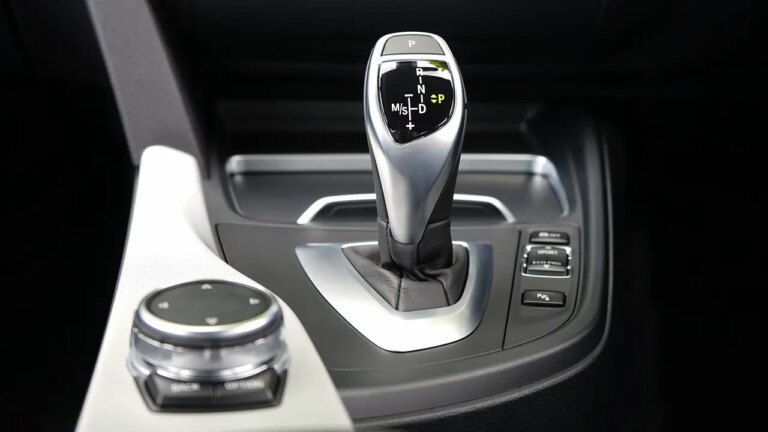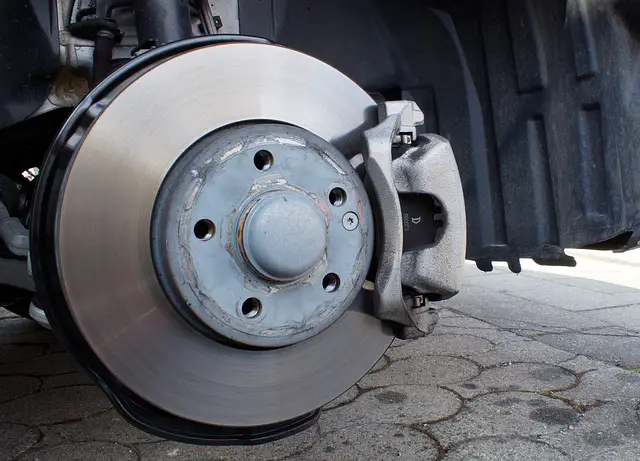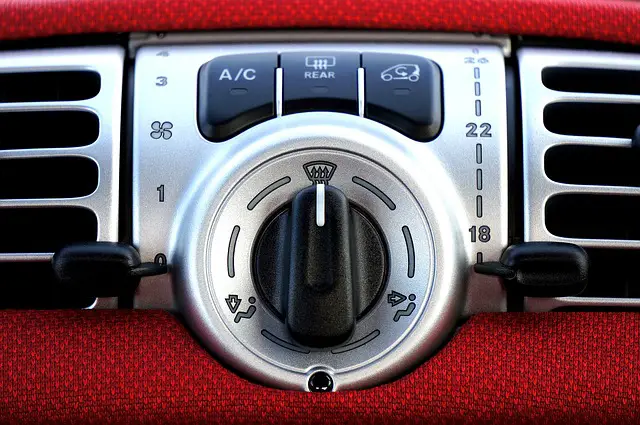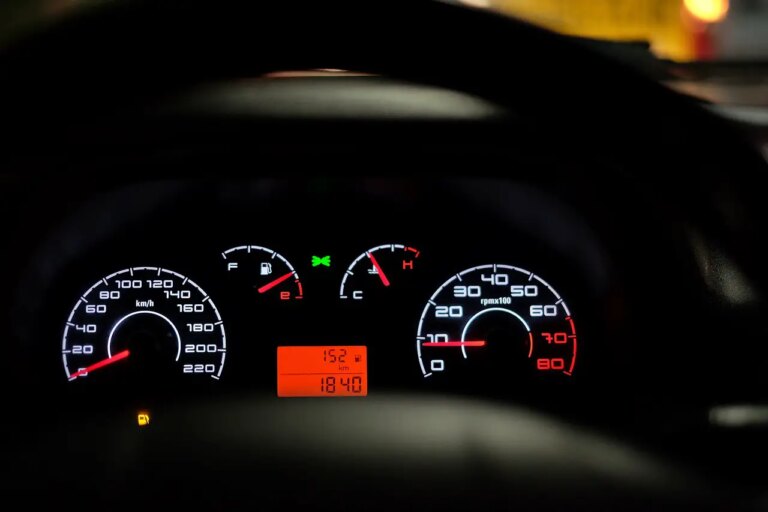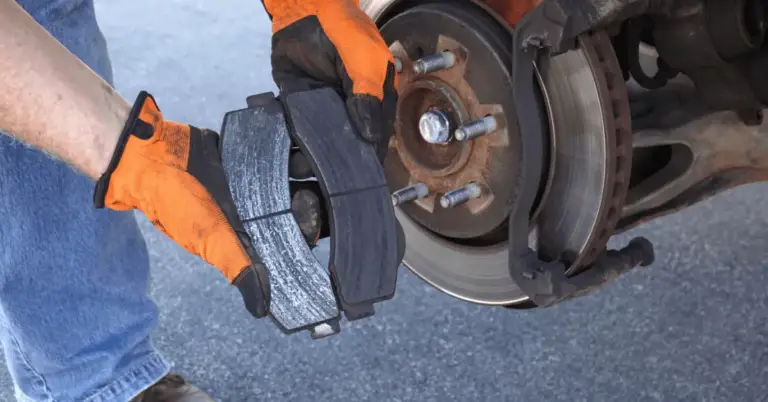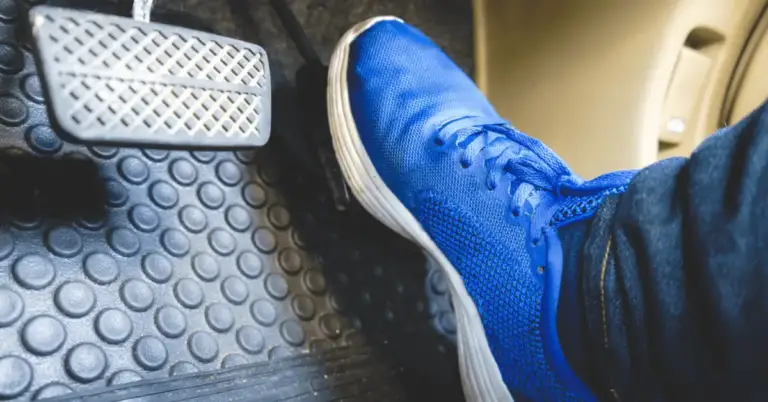New tires can be sold as new by a tire shop for up to 5 years after they were manufactured. As long as they have been stored out of direct sunlight, in the dry, and not in extremes of temperatures or excessively humid conditions, they will still be as good as the day they left the factory. Therefore they shouldn’t make any long-term weird noises, roaring or otherwise.
Because new tires may have different tread patterns and compounds than the old tires, they may make a louder noise. A few miles may be necessary for brand-new tires to “break in.” Wider tires have a greater contact area on the road, which can increase a roaring noise.
If your new tire continues to make a roaring noise, first check if the tire shop sold you a tire beyond this time frame.
This image shows you what to look for. The first two digits are the week the tire was made; the last two are the year the tire was made. 1114 would be the eleventh week in 2014, for example.
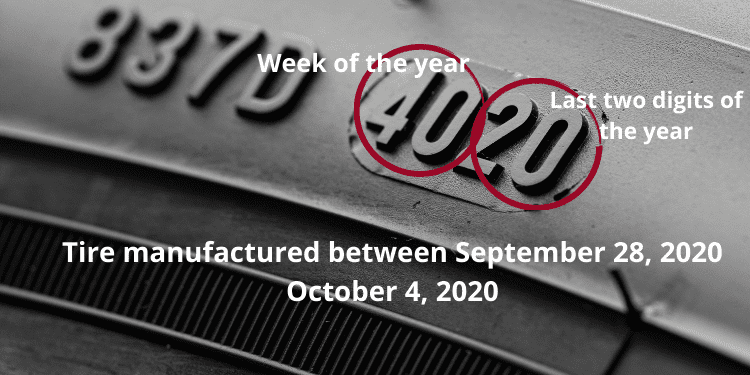
A newly fitted tire is generally considered new for up to 500 miles or two months, whatever comes first.
If your new tire makes a roaring noise during this timeframe, we’ll examine the reasons below.
Were Your Tires Rotated?
Tire noise is especially difficult to pin down on one particular tire. Often a roaring noise will be blamed on new tires, but that isn’t always the case. Did you change all of your tires or just one or two?
If you replaced two, the car shop might have rotated your tires, which lengthens the life of used tires. If they did rotate them, the noise you hear might be the older tires making a roaring noise.
This is what might have happened:
It is quite a rookie error, but the tires’ sides may have been crossed over when rotated.
If the rotated tires are directional, they should have been kept on the same side when rotating front to back or vice versa.
Crossing the tires over during rotation doesn’t cause an issue on multidirectional asymmetric tires.
On directional tires, you might hear a roar as the tire tread blocks are protesting at the wrong leading-edge, coming into contact with the road surface.
Look for an arrow on the tire, which should be facing forwards. If it’s facing backward, you’re your tires have been rotated onto the wrong side of the car.
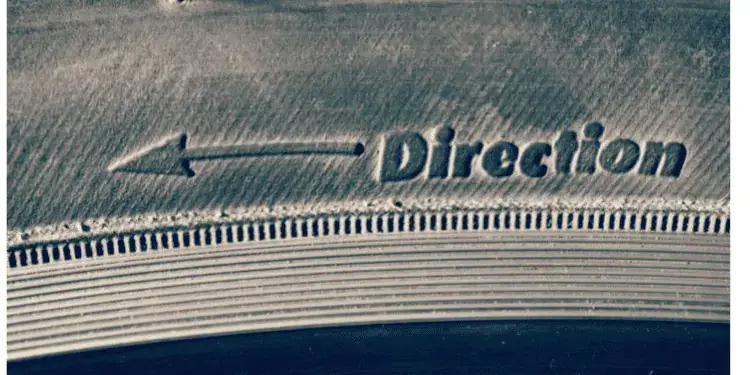
Abnormal Tire Noise vs. Normal Tire Noise
Although tire manufacturers spend millions on research, tires do make noise.
Some tire brands are noisier than others. Even if you have replaced a like for like size, be it summer, winter, studded, all-terrain, or all season, there might be a large difference in the noise you hear if you have changed the manufacturer. Some tires have more aggressive tread patterns and a slight variance in tread depth and rubber compounds.
Most car tires make a humming noise as they are driven across the road, but not always. Sometimes a roaring noise is also described.
Tire noise emanates from various places on and within the tire itself. The air inside the tire is compressed as it rotates, causing it to vibrate slightly, especially if underinflated.
Even if you’ve bought the same brand of tires before, manufacturers are always tweaking designs to improve their effectiveness. Your new tires might have better stopping power, but the trade-off was a louder roaring noise.
If you have swapped your tires from summer or all-season to winter tires, expect that to make more noise. These tires have firmer sidewalls to cope with adverse weather conditions. This firmness can increase road noise and, depending on the road surface, driven over has been described as a roar.
If you were old enough to have been driving in the 70s and 80s, you’d be aware that tire noise is far less than it was back then.
Someone driving during that time would be amazed at how quiet tires now are. This is due to the increased use of synthetic rubber, improved tread design, and fewer voids between the tread blocks.
8 Causes of Roaring Tires
Tires Unbalanced
Usually accompanied by vibration, unbalanced tires can make a roaring noise, albeit not too loud. This noise is caused by the tire’s weight not being evenly distributed around its diameter and circumference.
Typically, it manifests as a mix of steering pull and a distinct roar like rumble noise. Even though it is clear that something is wrong while driving, it is difficult to determine which tire is out of balance without putting them on a balance machine.
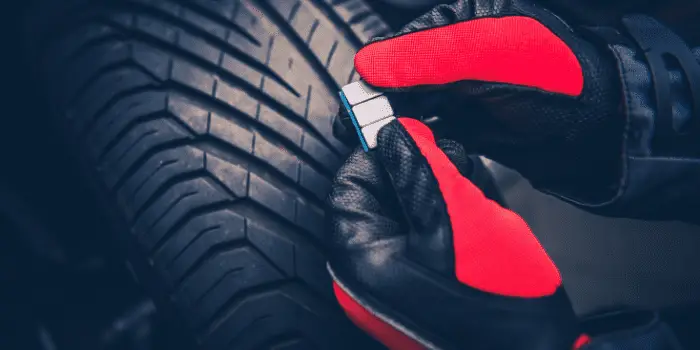
All tire shops should balance tires before the customer collects them. Tire weights do fall off, though, especially if the area wasn’t cleaned before they were stuck on the wheel.
Tire Pressure Low
It’s not uncommon for tire shops to under or over-inflate a tire once they replace it.
Generally, an underinflated tire will cause a roaring noise more often than an overinflated tire. There is more road tire surface in contact with the road, and the tire wall is compressed slightly when underinflated.
You mustn’t just do a visual check, as even a ten psi under-inflation is not always noticeable and will only show when a tire pressure gauge is used to check its pressure.
Uneven Tire Wear
Even if you’ve only had your new tires on for a few 100 miles, they can show uneven wear, but they might not be visible to the human eye.
One way to check if your new tires are starting to wear unevenly is to get a tire depth gauge into the grooves of different points of the tread pattern.
If the wheels are aligned and the tires balanced, that should be no difference in the millimeters of tread on your tire after only a few 100 miles.
A roaring noise could be caused by different areas of the tire pattern being in contact with the pavement more and taking all the strain.
An accurate digital tire gauge will give you an early indication if you are ruining your tires, and you can then take remedial action to correct this before they wear too early.
A digital tire depth gauge can save you hundreds of dollars over your driving lifetime by quickly identifying uneven wear patterns before they lead to new tires being needed.
Many visitors read this article next: Why You Get Tire Noise After Rotation – [ANSWERED]
Wheel Bearings are Faulty
Establishing whether or not your vehicle has a failing wheel bearing can be challenging. A failing bearing creates a roaring noise, so investigating whether you have worn tires or a damaged wheel bearing requires some investigation.
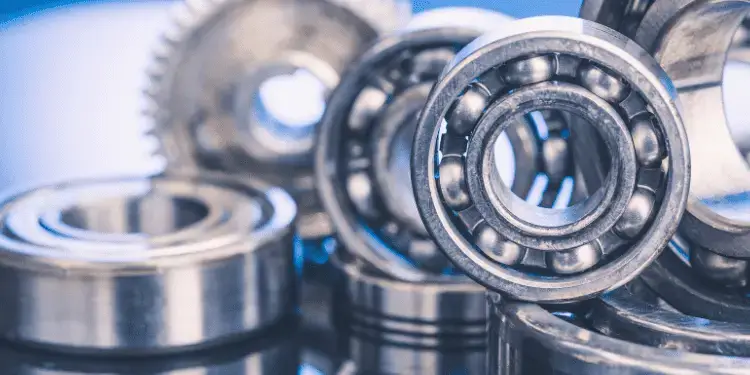
Similarly, your suspension may generate a variety of additional noises that make it difficult to determine what’s going on near your wheels. It is sometimes simpler to eliminate other faults with your car that might produce a roaring noise to establish if you have a broken wheel bearing.
Suspension Issues
The roaring noise you hear may be entirely unrelated to tires or wheel bearings, And it’s purely a coincidence that this roaring noise happened so soon after you changed your tires.
Are you noticing any issues with suspension or steering?
Is your ride firmer? Are you feeling jolts as you go over potholes?
Is your steering vague? Is the steering slightly off to the left or the right?
Do you hear a knocking noise when you turn the steering wheel?
These could indicate that you have a suspension issue rather than a tire issue.
Poor Wheel Alignment
Although wheel alignment is not affected by having new tires fitted to your car, if the tire shop struggled to get the lug nuts off the wheel assembly, they may have had to use force.
If so, it could have affected the alignment of your wheels. Poor wheel alignment causes the tire not to sit on the road properly, which can cause cupping and the tire to make a roaring noise.
This has many consequences.
What do you need? Wheel Alignment Vs. Tire Balancing
Your car is likely to pull to the left or the right.
Your steering wheel may be off-center, and you may notice that your tires are starting to show uneven wear, even if you have driven for just a few 100 miles.
Weather Conditions
Any moisture, rain, snow, or ice can cause excessive tire noise, especially if your tires are unsuitable for the weather conditions.
Tires roar when they struggle to grip ice and snow, and this is especially commonplace if you’ve summer tires in the winter and vice versa.
Road Surface Conditions
Have you driven over a different sort of road surface more often since you’ve had your tires changed? Concrete road surfaces are renowned for causing tire noise more than other ones.
Some concrete roads have grooves to help stop distances and prevent snow and ice from accumulating on them.
Concrete does make a loud roaring noise, and if you have got new tires fitted, that are a different brand. Combining these two issues could explain the roar that you are hearing.
Finally, a roaring noise could be coming from air entering through gaps around the windshield: What Causes Windshield Noise? And What To Do About It
In conclusion
Lubricating oils inside the tire need to spread out, and the rubber needs to warm up. Don’t worry if your new tires make noise the first couple of times you drive on them. If your tires are still roaring after a month or so, it’s likely related to alignment and balancing.


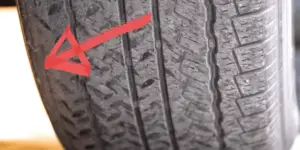
![Minor Dry Rotted Tires [GUIDE] Tire-veins-dry-rot](https://carzaza.com/wp-content/uploads/2023/12/Tire-veins-dry-rot-300x150.png)

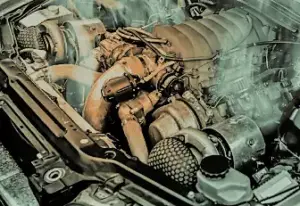
![Can Tires Be Put On Backwards -[Answered Fully] directionl-tire-noise](https://carzaza.com/wp-content/uploads/2023/12/directionl-tire-noise-300x150.png)
![Tire Pressure Light Blinking But Everything Fine - [SOLVED] TPMS-dash-warning](https://carzaza.com/wp-content/uploads/2023/12/TPMS-dash-warning-300x150.png)
